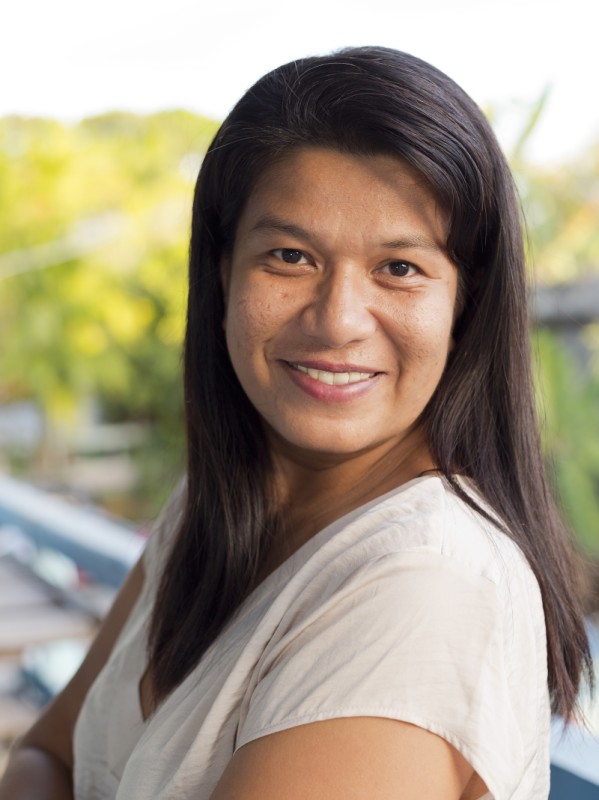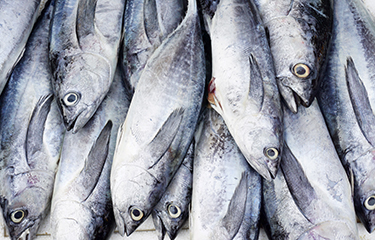Officies representing Pacific island countries are hailing the Western and Central Pacific Fisheries Commission (WCPFC)'s adoption of a revised Tropical Tuna Measure as a victory, but some NGOs said the commission still failed to act on a number of critical items at the WCPFC's 18th meeting, which ended 7 December.
The Tropical Tuna Measure guides fishing controls for bigeye, skipjack, and yellowfin tuna in the WCPFC’s jurisdiction. The measure was set to expire, which would have left the region’s tuna fisheries without updated guidance, but the comission agreed to extend the rules for two years, with some revisions.
“The measure had performed well in the previous three years. It had contributed substantially to the current healthy status of WCPO tropical tuna stocks and fisheries, which were the only sustainable global fisheries for tropical tunas,” Parties to the Nauru Agreement CEO Sangaa Clark said.
Pacific Islands Forum Fisheries Agency Director-General Manu Tupou-Roosen said the revised measure is “critical” to the Pacific Island nations that economically rely on the tuna fisheries.
“We are really pleased to advise is that there has been a positive outcome on this front with a measure put in place for two years and so that's a great achievement for not just the FFA membership, but for the commission as a whole,” Tupou-Roosen said.
At the meeting, the WCPFC adopted new measures on fish-aggregating devices (FADs) that would require they are made of materials that will not entangle sharks and turtles, and progressed toward requiring all FADs be made of biodegradable materials.
However, NGOs including The Pew Charitable Trusts criticized the WCPFC for not addressing other issues affecting the sustainability of the region's tuna-fishing efforts.
“Costly and inefficient negotiations over basic management of valuable tropical tunas at this year’s WCPFC left little room to address critical issues such as the long-term health and sustainable supply of these fisheries, and measures to prevent illegal fishing and harm to vulnerable species, like sharks,” Pew's International Fisheries Program Officer Glenn Holmes said. “Seafood markets and the public should be questioning governments about the significant resources deployed to make such little progress, and by the lack of transparency in how they arrived at decisions this week.”
Holmes said the commission failed at so many issues that it didn’t meet its own deadlines to adopt management targets for certain tropical tunas. It also failed to address increasing observer coverage requirements for longline vessels, leaving 95 percent of longline vessels unmonitored. The commission also neglected to make a commitment to improve fisheries monitoring through other techniques like electronic monitoring.
According to the Marine Stewardship Council (MSC), the conclusion of the WCPFC meeting still leaves 22 tuna fisheries at risk of facing suspension of their MSC certifications.
“The outcome of this week’s WCPFC meeting is disappointing for the fisheries, retailers, brands and supply-chain companies that have worked so hard to achieve and support the high level of sustainability required for MSC certification,” MSC CEO Rupert Howes said. “The unprecedented support for these fisheries to maintain their current MSC certifications from supermarkets and tuna brands from around the world demonstrates the growing market demand for and commitment to continue to source sustainable seafood despite the economic pressures and impacts of the current pandemic.”
Clark said the commission fell short in some of the goals the PNA had hoped to accomplish.
“PNA members and Tokelau shared, with other members of the Pacific Islands Forum Fisheries Agency, the need to take a precautionary approach to changes in the major elements of the Tropical Tuna measure,” Clark said. “The measure had gaps and weaknesses in it that would continue to need addressing, especially in the management of longline fishing in the high seas. However, there were limits to what could be achieved in a virtual session.”
Photo courtesy of enciktat/Shutterstock







